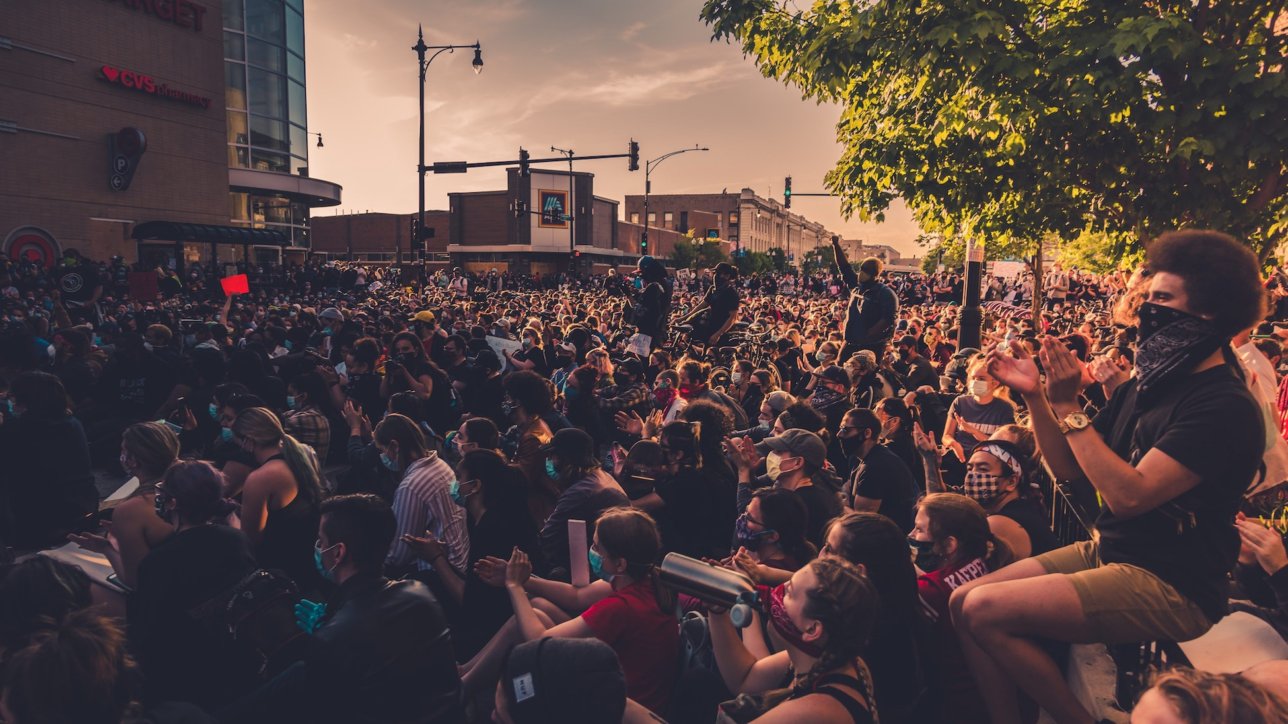One sign read, “I’m 66 and I can’t believe I still have to protest this!”
Ahmaud Arbery. George Floyd. And countless human beings before them. Murdered. And we say again and again, “I can’t believe this still happens!” “This has to stop!” “I can’t believe I still have to protest this!”
The reality is that we will likely continue to say things like this.
So is there anything we can do? Is there anything we should do?
“Everyone who hates his brother is a murderer,” writes the Apostle John (1 John 3:15). This is where I choose to start. I am “everyone who hates”. I am “a murderer”.
“How can you say to your brother, ‘Let me take the speck out of your eye,’ when there is the log in your own eye? You hypocrite, first take the log out of your own eye, and then you will see clearly to take the speck out of your brother’s eye.” (Matthew 7:4-5)
The problem is not first out there, but first in here – in me.
Deep within the human heart, deep within OUR own heart, there exists a sense of superiority. We hold ourselves to be, in someway over someone, superior. I do not mean that we know we are better at something than someone, or that they are better at something than we are. That is to be expected and can be acknowledged when necessary.
I mean by “superior” that we believe we are of more inherent or intrinsic WORTH than someone else. In other words, they are less valuable, less worthy, in many respects, less human. And in our pride we look down on them.
This “pride” is a problem for and in all of us. And where not confessed and repented of, it will lead to hate and division. And it’s a problem that’s not going away as long as the human heart stays the same and as long as we feed our cultural attitude with our OWN kind of hatred and indifference.
Hatred is hatred. Whether against another race or religion or gender or class or political party. And hate feeds hate. We want things to change? They won’t and they can’t as long as I hate. I may not hate the same things or people you do, BUT I STILL HATE. And so do you.
“To hate” can mean a strong dislike, aversion towards, hostility towards, to detest.
In many ways we are all responsible for the death of Ahmaud and George. Not because we’re not outraged or standing up or lending our voice to the outcry. We are, as we should be. But we’re all responsible because we all feed a culture of hatred and animosity and arrogance with our own. We justify our own hearts but condemn the hearts of others. “God, I thank you that I am not like other men” (Luke 18:11)”
My conviction is this: until we are all responsible, no one is responsible. For racism. For unity. For change.
The fundamental problem is not human skin but human heart. And the fundamental problem of the human heart is sin: pride and holding ourselves superior over God.
So, it would follow that, if the fundamental problem is the human heart, the fundamental solution is also the human heart. Or the forgiving and repenting of our sin towards God and towards others. In the end, and to begin, we’re talking about a recreating of the human heart.
Jesus said, “Are you also still without understanding? Do you not see that whatever goes into the mouth passes into the stomach and is expelled? But what comes out of the mouth proceeds from the heart, and this defiles a person. For out of the heart come evil thoughts, murder, adultery, sexual immorality, theft, false witness, slander. These are what defile a person.” (Matthew 15:15-20) We need a new heart.
“Why have I found favor in your eyes, that you should take notice of me, since I am a foreigner?” (Ruth 2:10) Or put another way, “I am a stranger; why have you treated me like a friend?” Here, Boaz, the kinsman redeemer, pursues Ruth with kindness despite the fact that she’s an outsider to the community. The heart of Boaz is the heart of Jesus. Jesus was often accused and called a “friend to sinners”.
Matthew records a parable (Matthew 25) in which Jesus teaches and identifies God as the God who identifies with the strangers, the hated, the despised, the rejected, the distant, the “worthless” and less than human — the very people I perceive to be my enemy today.
We have to read Jesus words as being first about US. About ME.
I AM THE ENEMY. But Jesus showed me kindness. I was a stranger, but He treated me like a friend and welcomed me in. His kindness and goodness towards me were not in vain! He chased me down, not to condemn me, but to save me and to lead me to repentance and to life. This is where change in the human heart begins: with tasting and seeing of the goodness of God in Jesus Christ.
Jesus became the enemy. He took our hatred. He was murdered on a cross for our sin. Why? That in His flesh He might break down every barrier that separates us both from God and from one another. Jesus came to KILL the hostility in our hearts in His flesh. And the power of the cross today is that it can heal hearts, and through healed hearts, it can heal society.
We begin to bring change by asking God to bring change to our heart. “Create in me a clean heart, O God” (Psalm 51:10). Let’s confess and repent of the hostility that is in us first. Let’s receive the kindness and forgiveness of God in Christ towards us, so that hatred can begin to lose its grip on our hearts and lives. Then we can go in obedience to Jesus and begin to “love one another as I have loved you.” (John 15:12)

